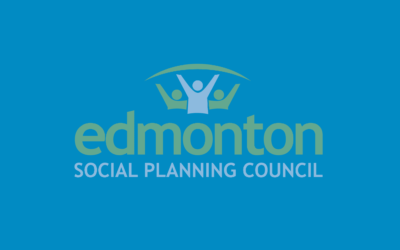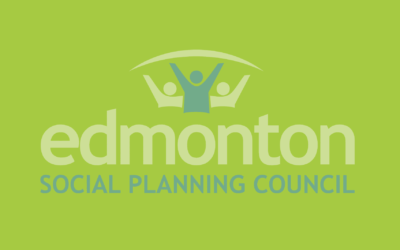Blog: A Person Who Is…: An Introduction To Person First Language

Words used to address individuals matter. Person first language centres the person as a person, versus their situation as defining who they are.
By Moyo Orekogbe, ESPC Volunteer
Has an aspect of your situation ever been used to describe the entirety of your identity? If you can relate to this question, then you may relate to the statement a single trait cannot sum up the entirety of a person’s identity.
Person first language, such as “a person who is homeless,” serves to humanize interactions and discussions by focusing on the person first. Think back to the last time you heard someone refer to an individual as a homeless person. Living in Edmonton or any city around the world, you would have encountered people that are homeless. Other attributes associated with the word “homeless” immediately enter your mind and frame your expectations. People have many assumptions about being homeless, some of which are exaggerated and untrue. A common misconception about homelessness is that these individuals are also dangerous or violent. So, the word “homeless” might unconsciously cause expectations for a hostile interaction. Unless someone has experienced homelessness or has taken the time to educate themselves about that situation, they cannot understand the struggles of being or experiencing homelessness.
The term “homeless person” anchors a person’s identity to an adjective with a negative social stigma. It brings to the forefront stereotypes related to homelessness, which may be unconsciously projected into any interaction. Rather than address or refer to someone as a ‘user,’ for example, it’s preferable to change to person first language and use the term person who is in recovery from a substance use disorder. (1)
Words used to address individuals matter. Choosing to describe someone in terms of just their disorder or condition rather than first recognizing the whole person can be disrespectful and lead to embarrassment and a loss of self-esteem. Instead of saying a homeless person, you can address them as someone who is currently unhoused. Using a more appropriate language style can help eliminate the stigma associated with seeking help. (1) It is not uncommon for stereotypes to be internalized to where a person expects others to believe these negative characteristics about themselves. While interacting with people who are currently unhoused, especially those in a position to offer aid, using person-first language combats the belief that others have negative expectations of them. Words like ‘a person who is currently unhoused’ highlight the changeability and temporariness of housing situations, creating a sense of hope. Therefore, person-first language helps the person seeking help to see themselves more than their situation.
Changing the language you use is the biggest change you can make to support people who are homeless at no cost. Make a conscious decision to see people as more than their situation by adopting a person first language when it comes to individuals that are currently unhoused.
Did You Enjoy this Blog? Please provide us feedback here
Orekogbe Moyosoreoluwa, who prefers to be called Moyo, was born and raised in Nigeria. Moving to Canada for University, she is now a Bachelors of Commerce graduate at 20 years old. Moyo is a volunteer with Edmonton Social Planning Council.
- Laguna Shores Recovery. What is person-first language?: Laguna shores. (2020, November 30). Retrieved September 21, 2022, from https://lagunashoresrecovery.com/what-is-person-first-language/#:~:text=Person%20first%20language%20is%20widely,of%20dignity%2C%20respect%20and%20hope.&text=Using%20person%20first%20language%20is%20also%20a%20more%20accurate%20way,eliminate%20stereotypes%20that%20can%20form.


